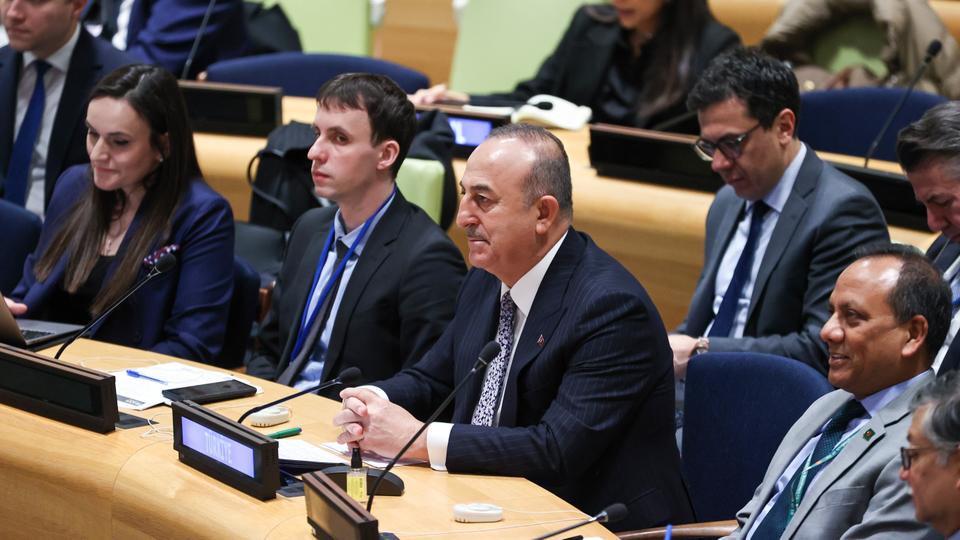Türkiye has urged the international community to adopt a stance of global solidarity to address the challenges presented by global migration.
“It is time to renew our commitments to the Global Compact, and make human mobility an engine for reaching our sustainable development goals,” Foreign Minister Mevlut Cavusoglu told a UN meeting on Thursday in New York focused on international migration.
The Global Compact for Migration, adopted by the UN General Assembly in 2016, is the first intergovernmental negotiated agreement to address “all aspects” of international migration, according to the UN.
In the nearly seven years since it was brokered, however, there has been an upsurge in global crises that have accelerated the international movement of people seeking a better life worldwide.
Cavusoglu pointed to what he called a “triple food crisis,” including the blows to global food security caused by the war in Ukraine, which he said Ankara addressed via negotiating a key international accord that saw grain exports resume from Ukraine’s Black Sea ports.
“The war in Ukraine brought global supply to a critical level, and we stepped in,” he said, pointing to the Black Sea Grain Initiative. “We will continue our efforts to secure its effective implementation.”
The Turkish foreign minister also pointed to a “crisis of food for the global economy,” saying that “high-interest rates and inflation deprive nations of accessing to investments funds and credits.”
READ MORE: UN Migration Pact and its adversaries
‘One humanity, one world’ approach
“Environmental problems such as waste threaten our existence,” he said.
“As one of the top three donors in development assistance in relation to GDP, we are doing our best to enable economies deliver to their citizens.”
“We are doing our part on the environment too. Today’s high-level UN event to mark March 30 as Zero Waste Day, an initiative championed by the first lady, her excellency, Emine Erdogan, will be a landmark.”
Cavusoglu said a third “crisis of food for thought” is marked by rapid developments in technology, but “uneven” access worldwide.
“Global youth is desperate without proper educational opportunities or future prospects. And this is one of our priorities. Half of all Syrian refugee youth enrollment in higher education takes place in Türkiye,” he said.
“We can overcome those complex problems if we adopt a ‘one humanity, one world’ approach to the challenges we are facing today,” he added.
READ MORE:
EU thanks Türkiye for upholding Black Sea Grain Initiative




















































Be First to Comment